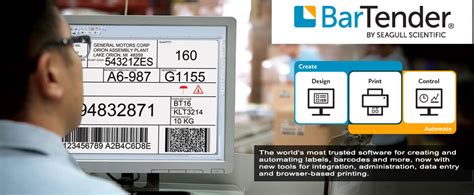In recent developments, the widely-used Mac application ‘Bartender’ has been acquired by an unknown developer. This news has sent ripples across the user community, with many expressing concerns over the transparency and intentions behind the acquisition. The lack of information surrounding the new owner has led to growing skepticism, especially considering Bartender’s broad access to user data, including screen recording permissions. Such ownership transitions are not novel, but they highlight enduring issues surrounding software trust and user privacy in the digital era.
The comments from the community encapsulate a wide range of emotions and opinions, from advocacy for open source solutions to criticisms about closed source models. For instance, some users highlight the advantages of open source software in mitigating risks associated with ownership changes. As one user pointed out, open source platforms allow for forks in the code, enabling the community to continue development independently if trust in the original authorship wanes. However, many argue that not all software can or should be open source, especially when the developers’ financial and operational considerations are factored in. As such, the debate straddles the fine line between the desire for transparency and the realities of commercial software development.
Compounding the issue is the recent trend of software companies being acquired by less reputable entities, raising alarms about potential misuse of user data. One pertinent example cited by the community is the acquisition of the ‘Stylish’ browser extension by an analytics company, which subsequently reported users’ browsing histories. Such instances have led to heightened vigilance among users, making them more wary of silent acquisitions and the intentions of the new stakeholders. By illustrating this parallel with Bartender’s case, it’s easy to see why transparency is so crucial in maintaining user trust.
Another striking aspect of this acquisition is the apparent silence from the previous owner about the changeover. Some users observed that developers usually announce such transitions with optimistic narratives about new opportunities and future plans. The hesitation to communicate the acquisition of Bartender fuels suspicions that the transition may not align with user interests. This situation has, unsurprisingly, led to some users uninstalling the application altogether, stating explicitly that they cannot trust the app’s new ownership.
The broader implications of this situation suggest a need for a more robust framework around software acquisition disclosures. Implementing regulations requiring developers to notify users about significant changes such as changes in certification and ownership may be a step towards preserving user trust. Moreover, enforcing policies where user data access permissions are adequately communicated can help allay anxieties surrounding data privacy. This is pivotal in a world where digital interactions pervade nearly every aspect of life.
While some users suggest transitioning to alternative apps, which might not require extensive permissions, the reality is that Mac’s functionality gaps often necessitate third-party solutions. Bartender has filled such a gap effectively, particularly for its capability to streamline the user’s menu bar. Users point out that native macOS does have some built-in solutions for managing menu items, though these are limited compared to Bartender’s full feature set. The possibility of Apple integrating such functionality directly into macOS, or at least opening API access for third-party developers without compromising user privacy, could potentially mitigate the reliance on third-party solutions.
The community’s reaction to the acquisition underscores a universal concern in software usage – the balance of trust and functionality. Whether an application is open source or closed source, its long-term viability hinges on maintaining user trust. As digital consumers, our reliance on such utilities invites us to demand higher standards of transparency and accountability from software developers. Thus, it is pivotal for users to remain informed and vigilant about the software they rely on and for developers to uphold principles that align with user security and privacy concerns. The Bartender acquisition saga serves as a valuable case study, not just for Mac users, but for the software community at large, calling for a reevaluation of how software trust is managed in an ever-evolving digital landscape.


Leave a Reply